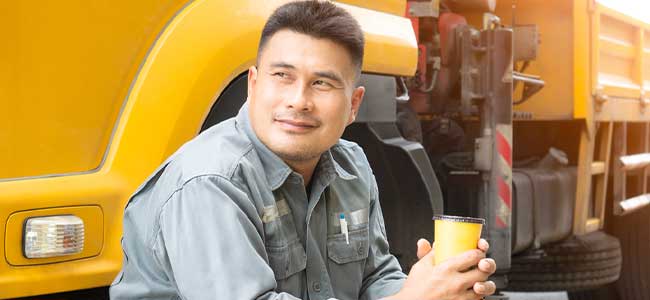
Hydrating in the Heat Part 3: Can Other Drinks Besides Water Affect Hydration?
People prefer different beverages depending on the time of day, but when it comes to working in the heat, it's vital to know how they'll impact a worker's hydration.
- By Alex Saurman
- May 10, 2023
OH&S’ first and second parts of this series went over the volume of water employees working in heat should drink and the role urine color plays in knowing your hydration status.
However, water is not the only drink most people consume throughout the day. People often choose what drink suits their needs or wants. Some might prefer energy drinks to help get them through a long shift while others may pick soda or a sweeter drink simply because they enjoy the beverage’s flavor.
But when you’re working in hot temperatures, should these or other non-water drinks be avoided, and what effect does consuming them have on hydration?
Caffeinated beverages. According to Harvard, “Although caffeine has long been thought to have a diuretic effect, potentially leading to dehydration, research does not fully support this.” Though urine output can decrease with too much caffeine, that doesn’t mean it will cause dehydration. In fact, the National Institute for Occupational Safety and Health (NIOSH) says that “The amount of caffeine in tea, coffee, and soft drinks probably will not have an effect on overall hydration.”
Energy drinks. Some workers turn to energy drinks to help them get through the day, but one of the significant ingredients in these beverages is caffeine, per the National Center for Complementary and Integrative Health.
Alcohol. Consuming alcohol before or during work hours is extremely dangerous. Not only does inebriation lead to changes in coordination, impaired judgment and dizziness—which negatively affects a worker’s ability to do their job safely—but it also brings about dehydration, per NIOSH.
Sports drinks. When people sweat, their bodies can lose salt, or electrolytes. Although NIOSH says water and meals should help keep electrolyte levels even, in cases of extreme sweating, sports drinks can be utilized. But drink too much and your calorie intake will also increase. In addition, the consumption of salt tablets to replenish lost salt is not recommended by NIOSH.
All in all, other options for hydration do exist, but, in NIOSH’s words, “Water will almost always maintain hydration during work in the heat, as long as you eat regular meals to replace salt lost in sweat.”
This article is meant solely for educational purposes and not to provide medical advice. Please seek medical attention or advice from a professional if you are concerned about your health or have questions about hydration.
About the Author
Alex Saurman is a former Content Editor for Occupational Health & Safety,who has since joined OH&S’s client services team. She continues to work closely with OH&S’s editorial team and contributes to the magazine.